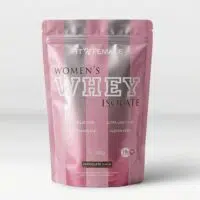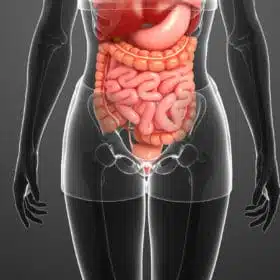In recent years, breastfeeding has made a real comeback among young mothers. There is a good reason for this, because as numerous scientific studies have now shown, breast milk is, with a few exceptions, the best food for babies. There are many reasons for this. On the one hand, breast milk contains valuable protein and lots of micronutrients, which are extremely important for the child's development.
On the other hand, further studies suggest that breastfeeding has an enormous influence on the development of the immune system, the brain and also on reducing the risk of obesity and type 2 diabetes. But what makes breast milk so special? How can milk production be optimized? And does the intake of whey protein have a positive influence on breast milk?
What is the composition of breast milk?
As with all mammals, breast milk is the natural food for infants. The matrix of micro- and macronutrients that make it up is correspondingly complex. The basis for this is, of course, water, which accounts for 87 percent. This is followed by an equally high proportion of energy-rich macronutrients. While lactose makes up a good 7 percent, fat accounts for 3.8 percent and proteins for around 1 percent of the total mass. The fascinating thing about breast milk, however, is that it constantly adapts to the baby's needs and changes its composition.
What proteins are in breast milk?
Basically, the protein content of breast milk is made up of both casein and whey. How high the concentration of both types of protein is in relation to each other depends on the "milk stage". As a rule, however, the mixing ratio of casein to whey varies between 70 to 30 and 80 to 20. At this point, it is interesting to compare human breast milk with the breast milk of other mammals.
This shows that the proportion of whey protein in human breast milk is significantly higher and therefore plays a greater role in human development. In addition, breast milk is characterized by a high glutamine content. The amino acid has excellent bioactive properties and plays a key role in the organism both in the citric acid cycle and as a possible neurotransmitter.
What influence does nutrition have on milk production?
As we have already seen, whey or whey protein is very important for the development of infants. With this in mind, the question naturally arises as to how nutrition affects milk production. Interestingly, there are not yet too many studies on this topic. However, studies from India and Nigeria indicate that there is a positive correlation between milk volume and the amount of protein consumed in the diet. A comparative study showed that milk production increased significantly in women who increased their daily protein consumption from 50 grams to 100 grams. However, current studies have shown that a significantly higher fluid consumption, which exceeds the natural level of thirst, has no effect on increasing the amount of milk produced.
So how can milk production be increased?
Nature is a true miracle of efficiency. Of course, this also applies to the production of breast milk, because if the baby does not express, no breast milk is produced. So to optimize milk production, the mammary glands should be stimulated frequently. Either by the child itself or by pumping.
This ensures that the average amount of milk produced each day is between 750 and 800 milliliters. The amount produced can also be increased with the help of some herbs. For thousands of years, women in many regions of the world have relied on the use of herbal "galactagogues", i.e. herbs that increase breast milk production. Typically, kitchen herbs such as fennel, aniseed, caraway seeds or dill are chosen.
Can I optimize the whey protein content in my milk?
We already know that whey protein plays an important role and makes up a large proportion of breast milk. But how can the proportion in breast milk be kept optimal? Simple question, simple answer. By increasing protein consumption, which is of course best covered by the highest quality proteins possible. This is where high-quality whey protein powders come in. Especially in stressful everyday life, when nutrition does not always work smoothly, one or two protein shakes of 30 grams each are an ideal nutritional supplement for breastfeeding mothers.
However, it is important that you choose a high-quality whey protein with the highest possible protein content of at least 80 percent. The bottom line is that there is nothing to stop you from using whey protein while you are breastfeeding. After all, it is honestly nothing more than a food that also supports the optimal quality of breast milk and thus provides both you and your child with the best possible high-quality protein.






